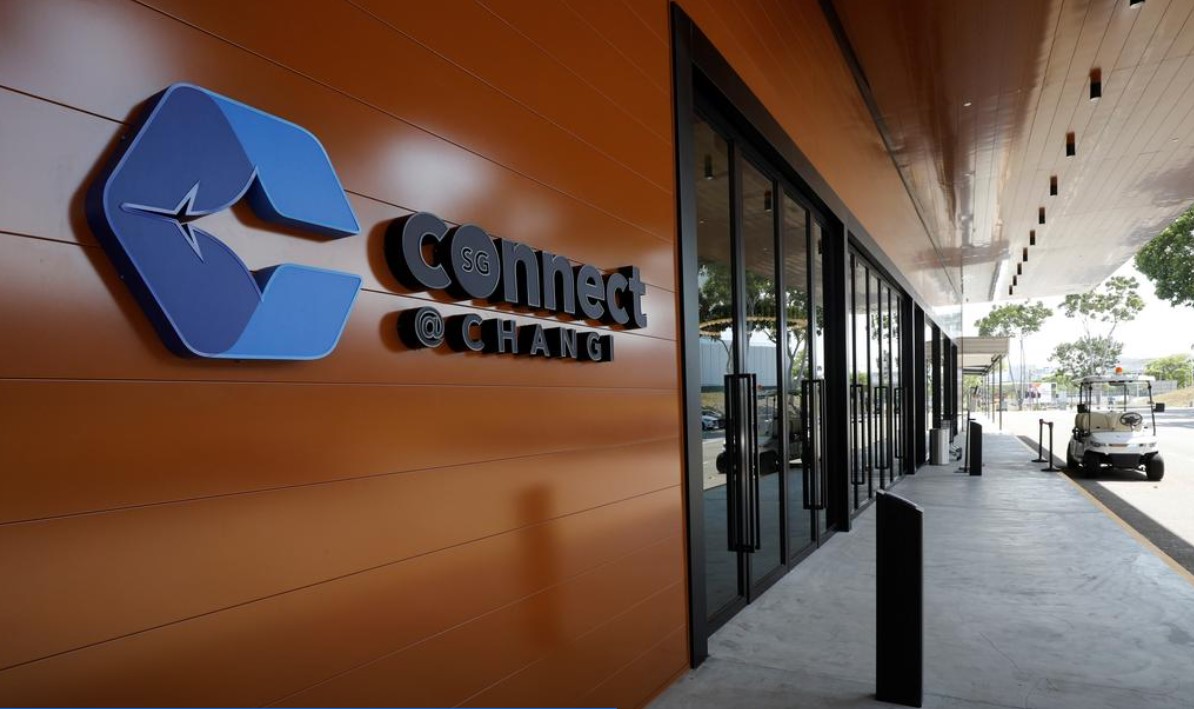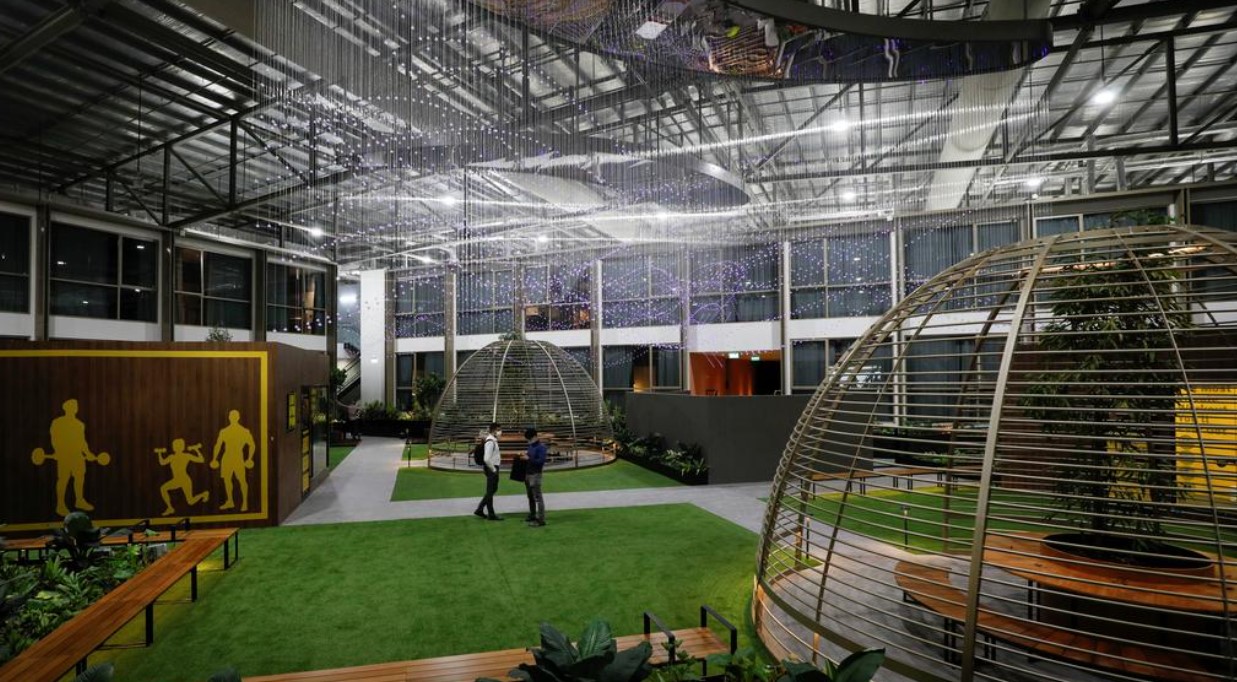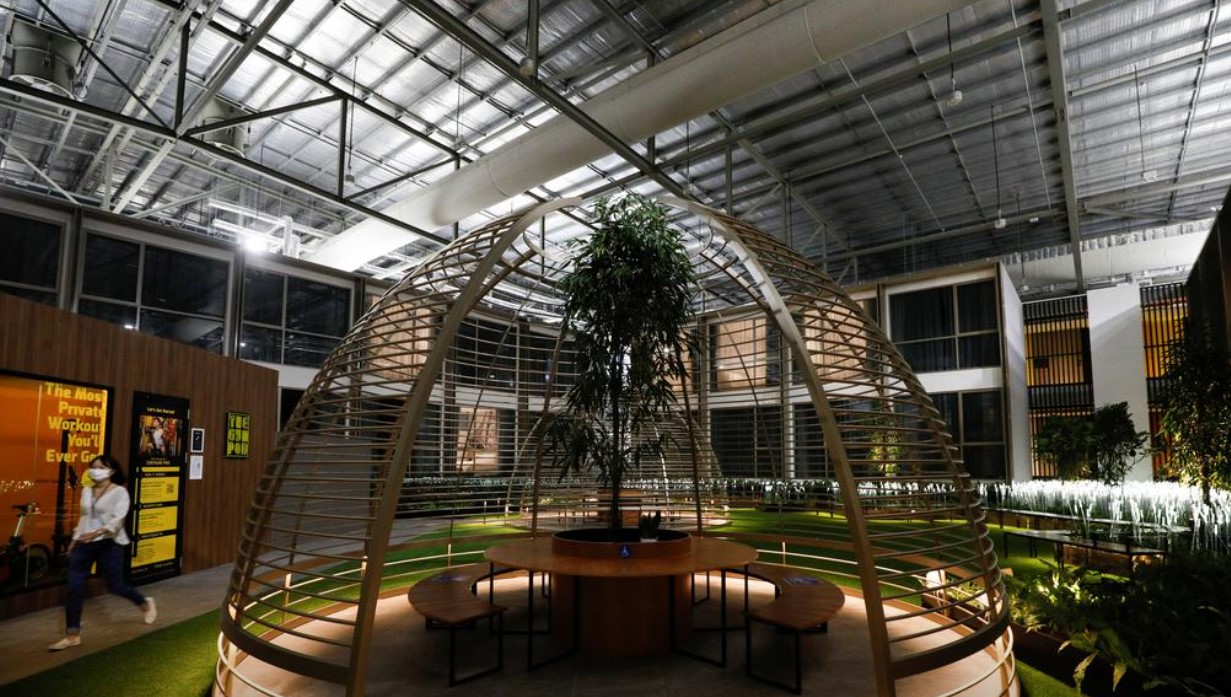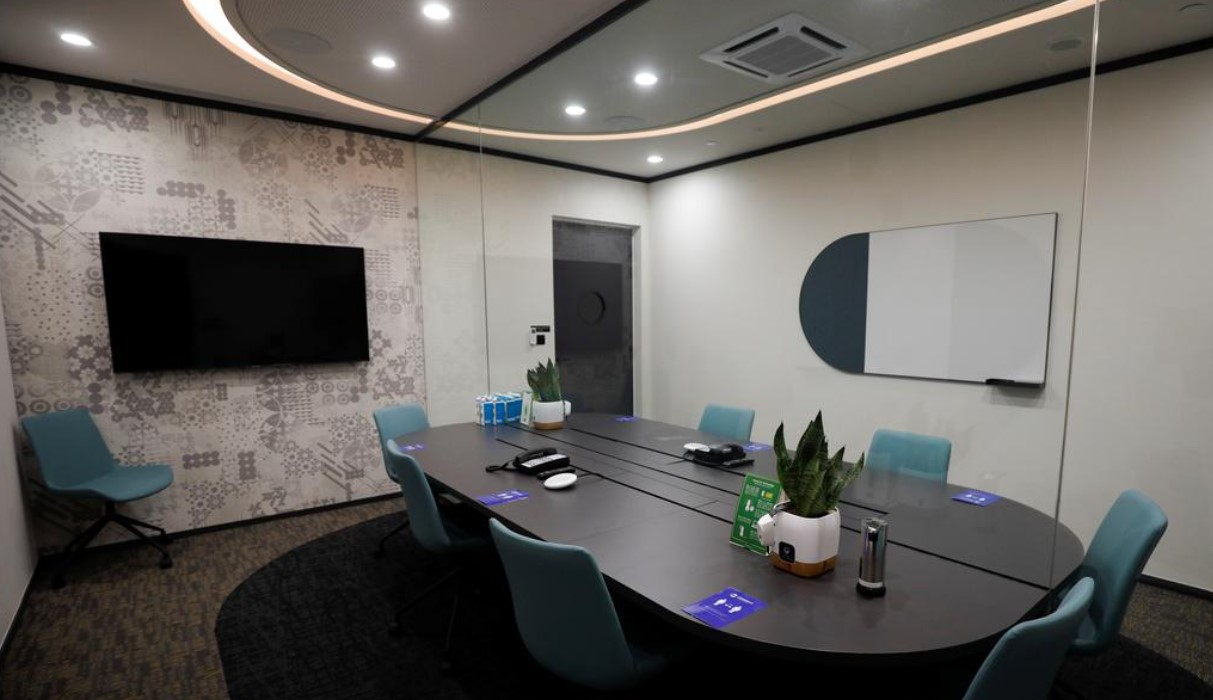Singapore readies quarantine business bubble for in-person meetings


SINGAPORE - Singapore has been testing out a “bubble” business hotel that will allow quarantined executives arriving in the country to do face-to-face meetings and even exchange documents without fear of spreading the coronavirus.

The bubble has been set up in an expo venue near the city-state’s Changi airport and features separate air ducts for visitors and guests, plus dozens of conference rooms with screens dividing those in quarantine with other attendees, who communicate via a speaker.


It also has a special compartment through which documents and other items can be safely passed from one side of the room to the other, through a UV light that sanitises the contents.
“It wasn’t long before we realised that the pandemic was likely to have a really long tail, and possibly lasting for years, so therefore it was a problem looking for solutions,” said Robin Hu of state investment firm Temasek, which came up with the idea.
When it opens next month, the facility can accommodate 150 guests and offer 40 meeting rooms. It aims to raise that to 660 guest rooms and 170 meeting rooms by May.

Rooms cost at least $384 per night.
Guests will be required to commit to five swab tests, one in the departure country, one on arrival and three during the two-week quarantine phase.
Hu said the initial bookings have mainly come from business travellers, but the face-to-face format had generated interest from others too.
“We have also had inquiries from parents who have kids studying here in Singapore, whom they haven’t met for an entire year,” he said.
“If we are doing some good to parents to relieve their anxiety, and I think we’ll be doing something good as well.”
Owing to strictly enforced curbs and tight quarantine measures, regional business hub Singapore has kept a tight lid on its coronavirus infections, despite clusters emerging last year in migrant workers’ dormitories.